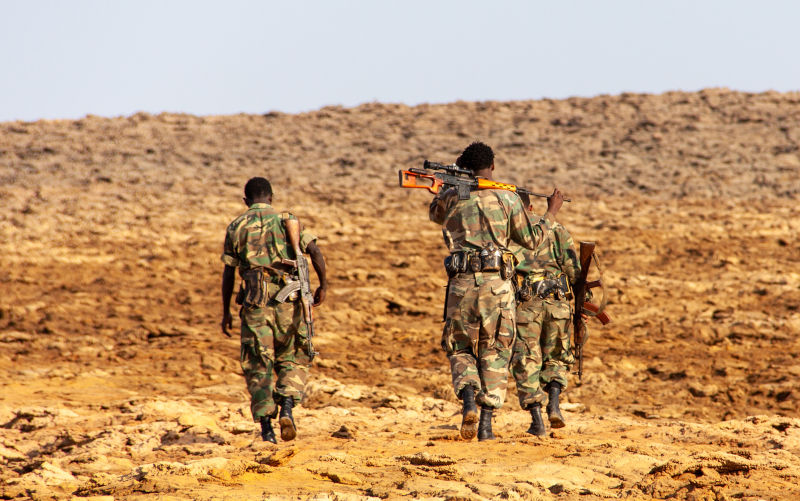Ethiopian Civil War and its manufactured humanitarian crisis
Nov 11, 2022
The brutal internal conflict between Ethiopian national forces under the leadership of Prime Minister Abiy Ahmed and the Tigray People’s Liberation Front (TPLF) has inflicted untold suffering on millions of innocent people.
It is estimated between 300,000 and 600,000 have lost their lives, while millions have been displaced. Hardly anyone in the western world will lack knowledge of the Ukrainian war, many absorbing daily information. In raw figures this conflict’s brutality, has been infinitely more horrific, and yet few are cognisant of it, or the humanitarian crisis that has unfolded. This conflict has now been raging for approximately two years.
Ethiopian Prime Minister Abiy Ahmed came to power in 2018 amidst fresh expressions of hope for a new era of justice, freedom and democracy in the horn of Africa. The early signs were good, including the promotion of women to significant positions of authority in politics and civil society. In 2019 Abiy was awarded the Nobel Peace Prize for ending a protracted border dispute with Eritrea. Eritrea gained autonomy from Ethiopia in 1993 after a long and bitter struggle. In 2002, the international arbitration commission ruled in favour of Eritrea in an outstanding dispute, but Ethiopia would not accept the ruling. In 2018 Abiy conceded and accepted the ruling.
Ethiopia consists of several tribal regions, Oromia being amongst the largest. Tigray, a smaller region in the north, became powerful through its military arm, the TPLF. Formed in 1975, the TPLF was instrumental in the overthrow of Ethiopia’s Derg regime in 1991. Consequently, this province enjoyed considerable power in subsequent Ethiopian governments. Under Abiy Ahmed’s government that power evaporated. Tensions simmered. Hostilities began on 3 November 2020 when the TPLF attacked an Ethiopian Defence Force base in the Tigray region. Conflict quickly escalated and fortunes seesawed. Neighbouring Eritrea, so recently at peace with its Ethiopian cousin, became involved.
Unspeakable atrocities have been perpetrated by both sides. Rape and pillage have been weapons of war.
Despite not being a party to the conflict, a region to suffer grievously has been Afar. Bordering Tigray to the north and being a crucial trade route to the Red Sea for landlocked Ethiopia, the Afar region became a potential trophy for the TPLF. While there are significant townships in the Afar region, the people and their culture are semi-nomadic. The people received no protection or assistance from the Ethiopian government and have suffered grievously. Stock have been stolen or killed, women raped, young children conscripted, infrastructure destroyed, civilians murdered, livelihoods decimated. No stone has been left unturned in an attempt by the TPLF to destroy the capacity of Afar to survive. It has been left to the Afar themselves, with extremely limited resources, to defend their territory, their people, and their future. Malnutrition and famine have become the lived reality for many, perhaps most.
Lacking food, shelter and capacity to quickly rebuild livestock and livelihoods, many Afar are left in a parlous position. Basic infrastructure such as health clinics and schools have been destroyed.
On 2 November 2022, an African Union brokered truce between the Ethiopian government and TPLF representatives was signed in Pretoria. Significantly, the TPLF not a representative of the “Tigray government” was signatory to the truce. It is also significant the truce was brokered by the African Union, not by the United Nations. The TPLF is to be disarmed. Considerable concessions have been made on condition that aid will immediately flow to the Tigrayan people. Whether the truce will hold is yet to be determined. The guns were still being fired two days later. Eritrea was not a party to the truce, and it is yet to be seen how they will respond. It is also unclear how the terms of the truce will be transparently monitored and enforced. Most importantly, how is much needed aid to be distributed to Tigray’s starving, and from where is that aid to be sourced? And what of the Afar? Incidental victims of others struggle for power and resources, are they again to be out of sight out of mind? Will international aid be made available to assist these proud and resourceful people to rebuild, and will the Ethiopian government invest fairly in their future?
History shows false horizons of hope litter every tortuous road to lasting peace. If apparent victors deal harshly with the vanquished, resentment festers until hostility breaks out once more.
The international community carries considerable responsibility for futures yet to unfold.
European advancement and prosperity were built through colonisation and the harvesting of assets that belonged to the colonised. Africa continues to suffer the consequences of colonisation. National boundaries were established to suit the needs of competing European interests, not to reflect long developed allegiances and boundaries of the continent’s population.
There are multiple reasons why nations whose prosperity was built on the resources of others have not simply a moral obligation but a self-interested obligation to assist those in the world who are struggling.
- We, the later comers to Australia who have colonised the land of this continent’s First Nations peoples, know full well the price they continue to pay, and our shameful reluctance to listen. To a greater or lesser degree, the same applies to all colonised people.
- Poverty is not fundamentally lack of resource, but lack of choice. Aid should not primarily be about packaging up emergency food, although it is that, aid should be the empowerment of the vulnerable with choice about their own lives and future.
- We in the developed world continue to pillage poor nations passively and sometimes actively. We do it actively through international companies, especially mining companies, whose activities disproportionately benefit the company and not the owners of the resource. More seriously we do it passively through the impact of our lifestyles on climate change. Those who contribute least to global warming carry the cost created by those of us who contribute most.
- We might like to think national boundaries are sacrosanct. They are not. Issues that affect our daily lives have global roots with no nation possessing the capacity to solve them on their own. The poverty of others impacts us all. As more of the planet becomes inhospitable, through conflict, exhaustion of resources, natural disaster or climate change, humans will do what they have always done when choice evaporates, – trans-migrate.
The Western world has quickly taken sides in the Ukrainian war. I do not wish to argue with that decision. But to ignore a conflict of even greater proportions of suffering on another continent is foolhardy and morally indefensible.




